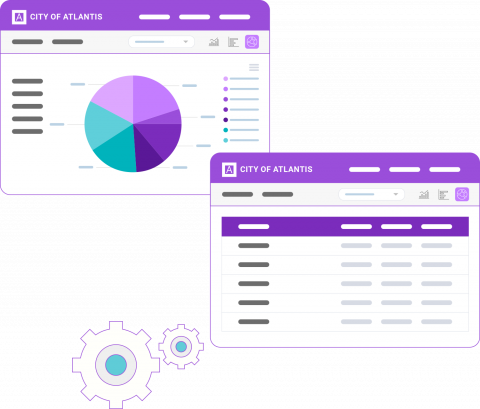
Audience
- Sentiment: Mixed
- Political Group: Liberal
- Age Group: 25-45
- Gender: Both
Overview
- The DOGE website launched by Elon Musk aims to increase government transparency but has raised concerns about national security risks.
- Sensitive information about the National Reconnaissance Office was shared, alarming intelligence experts and former officials.
- Public reaction is divided, with some advocating for transparency while others prioritize security concerns.
The Controversy About the New DOGE Website: What You Should Know
In today’s fast-paced world of technology and information, a new government site has emerged that has many people talking—some are even alarmed about its implications. Launched by none other than Elon Musk’s Department of Government Efficiency (known by its catchy acronym, DOGE), this website has raised a lot of eyebrows, especially among the intelligence community. But what exactly is all the fuss about? Buckle up, and let’s dive into the details!
What is the DOGE Website?
Elon Musk, famous for his work with companies like Tesla and SpaceX, has taken his innovative spirit into the realm of government efficiency. Enter the DOGE website. This platform was created to help citizens access government data more easily, making it easier to understand how tax dollars are spent and increasing transparency. Sounds great, right? Well, it turns out that sometimes, when you open the door to information, you might inadvertently let in some risks as well.
On this new site, details were posted about the National Reconnaissance Office (NRO). The NRO is a vital agency that manages U.S. intelligence satellites. These satellites are crucial for gathering information about what’s happening around the globe. For instance, they can help keep tabs on potential threats, natural disasters, and military activities. Protecting this kind of information is essential to keeping our country safe. However, the DOGE website disclosed some sensitive details, including the NRO’s budget and personnel headcount—all information that many experts believe should have stayed confidential.
Why is This a Big Deal?
The intelligence community is understandably concerned about the implications of this data being made public. When military and intelligence operations are exposed, it creates potential risks for the people working in those fields. For instance, revealing how many intelligence workers there are and how money is allocated can provide adversaries with a significant edge. If a rival country knows how many spies are on the ground or how much the U.S. is investing in certain technologies, they can better plan their own strategies to counter U.S. efforts.
Experts have not shied away from expressing their fears. Former CIA officials and intelligence analysts have labeled this revelation a “significant risk.” They are worried that this could put the safety of individuals working in intelligence roles at risk. Imagine if someone you care about worked in such a sensitive role, and their details were available for anyone to see—that’s pretty concerning, right?
The Defense: Not All Bad?
Interestingly, a Trump administration official came out to defend the website and the openness it provides. They argue that making certain data available to the public enhances transparency and accountability. In today’s world, many believe that citizens have a right to know how their government operates and what happens to their taxpayer dollars. In this sense, the DOGE website aligns with a broader movement towards making government more open and accessible to its citizens.
Supporters of this approach believe that transparency can help in rebuilding trust between the government and the people. If you feel that you are being informed about where your money goes and how it is being used, you might feel more engaged and supportive of government actions. But here’s the catch: when it comes to national security, there’s a fine line between what should be shared and what should remain under wraps.
The Balance Between Transparency and Security
This situation really brings up some important questions about finding the right balance between transparency and security. In a democratic society, citizens indeed deserve to know what their government is doing, but the stakes become much higher when it involves national security. If sensitive information compromises the safety of intelligence workers or reveals too much about U.S. capabilities, it can lead to dangerous consequences.
Think about it this way: imagine you had a secret club where you and your friends made plans to accomplish something exciting, like a scavenger hunt. Naturally, you wouldn’t want anyone outside your group to know your plans or strategies. If you shared too much information, people outside the club might come in and ruin your plans. It’s the same idea when it comes to government operations—some things simply need to stay secret for safety reasons.
Public Reaction and Concerns
Public reaction to the launch of the DOGE website has been mixed. While some people appreciate the effort to make government operations more transparent, others are alarmed at what this could mean for national security. Social media has been abuzz with different viewpoints. Some users argue that the government should be more open, while others believe the risks far outweigh the benefits.
This divide reflects broader societal debates about privacy and security. In recent years, there have been heated discussions about how much personal information companies and governments should have access to. For many, the safety and security of individuals come first.
What’s Next?
As the dust settles from the launch of the DOGE site, it’s likely that there will be further discussions and even changes regarding how sensitive information is handled and disclosed. The intelligence community may push for stricter guidelines on what can be shared publicly, especially as we see the consequences of this disclosure unfold.
In the end, it’s clear that when it comes to transparency and national security, one size doesn’t fit all. While we all want to be informed, we also want to feel safe. The challenge will be finding a way to achieve both, which requires thoughtful discussions and decisions by leaders.
Engaging the Community
As we navigate this tricky terrain between openness and security, we want to hear from you: What do you think about the launch of the DOGE website? Do you believe that certain information should be kept secret for safety reasons, or do you think transparency is more important? How do you feel about Elon Musk’s approach to government operations? Share your thoughts in the comments below! Let’s engage in a meaningful conversation about transparency, security, and the role of government in our lives.






